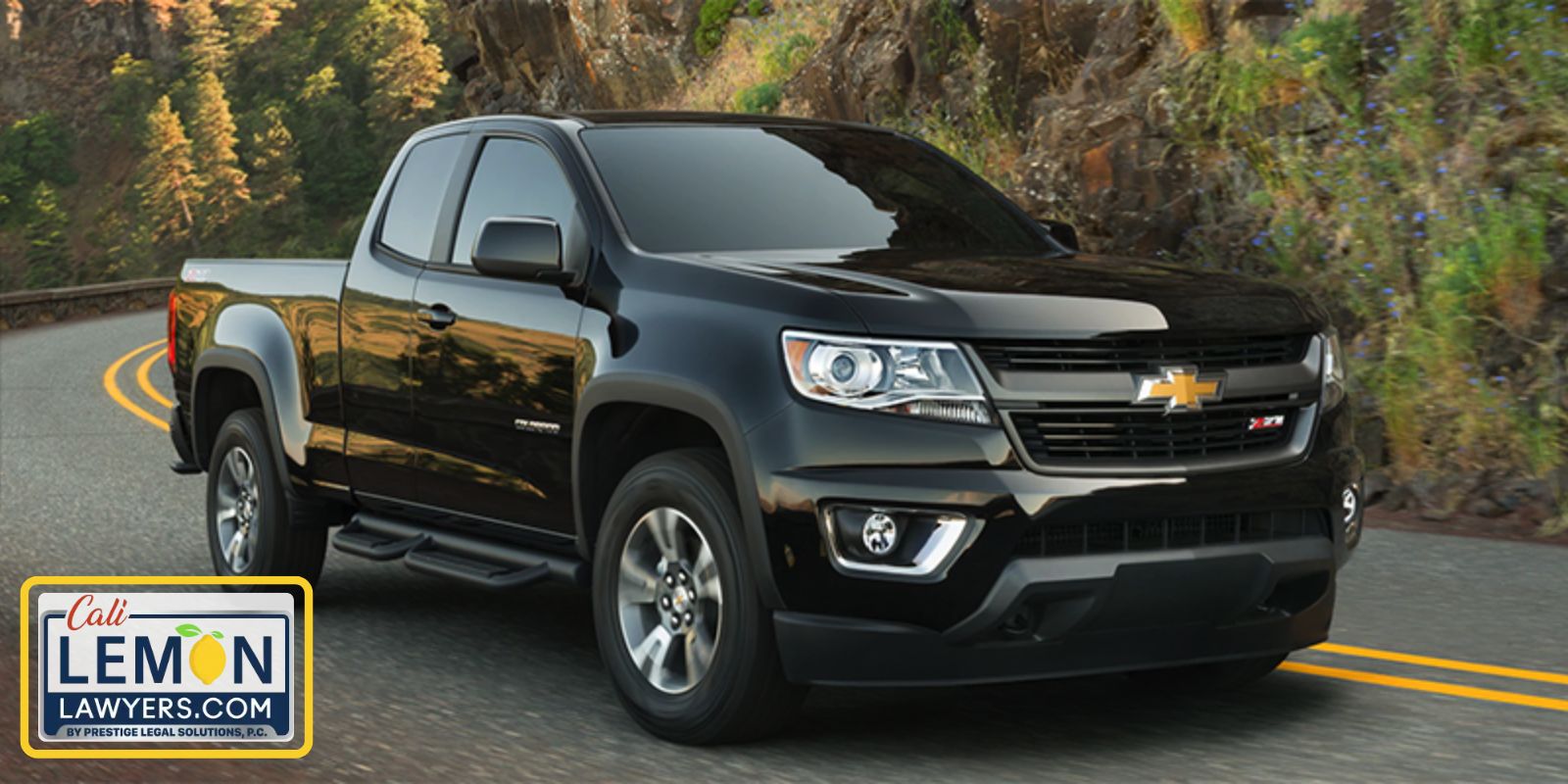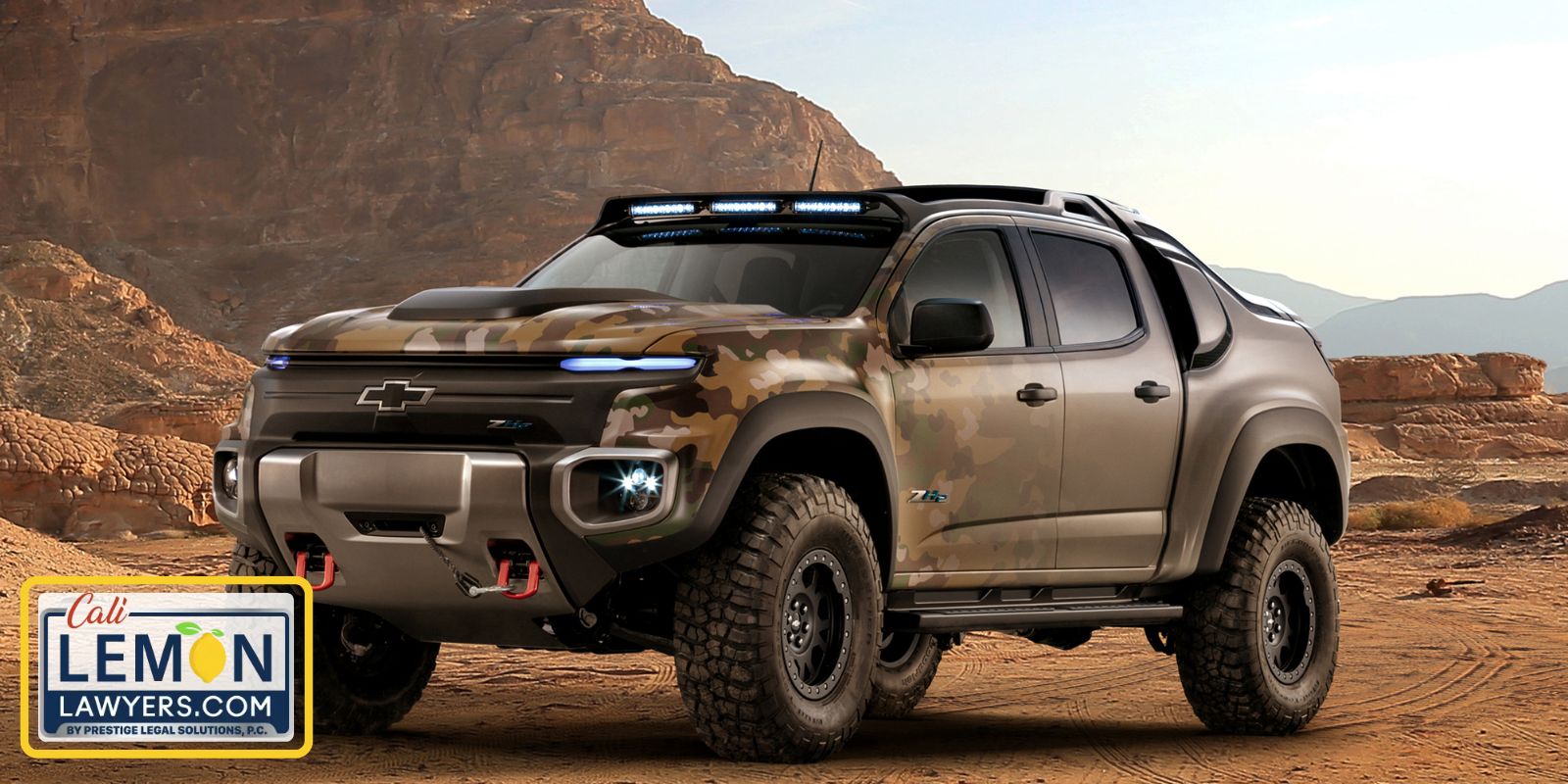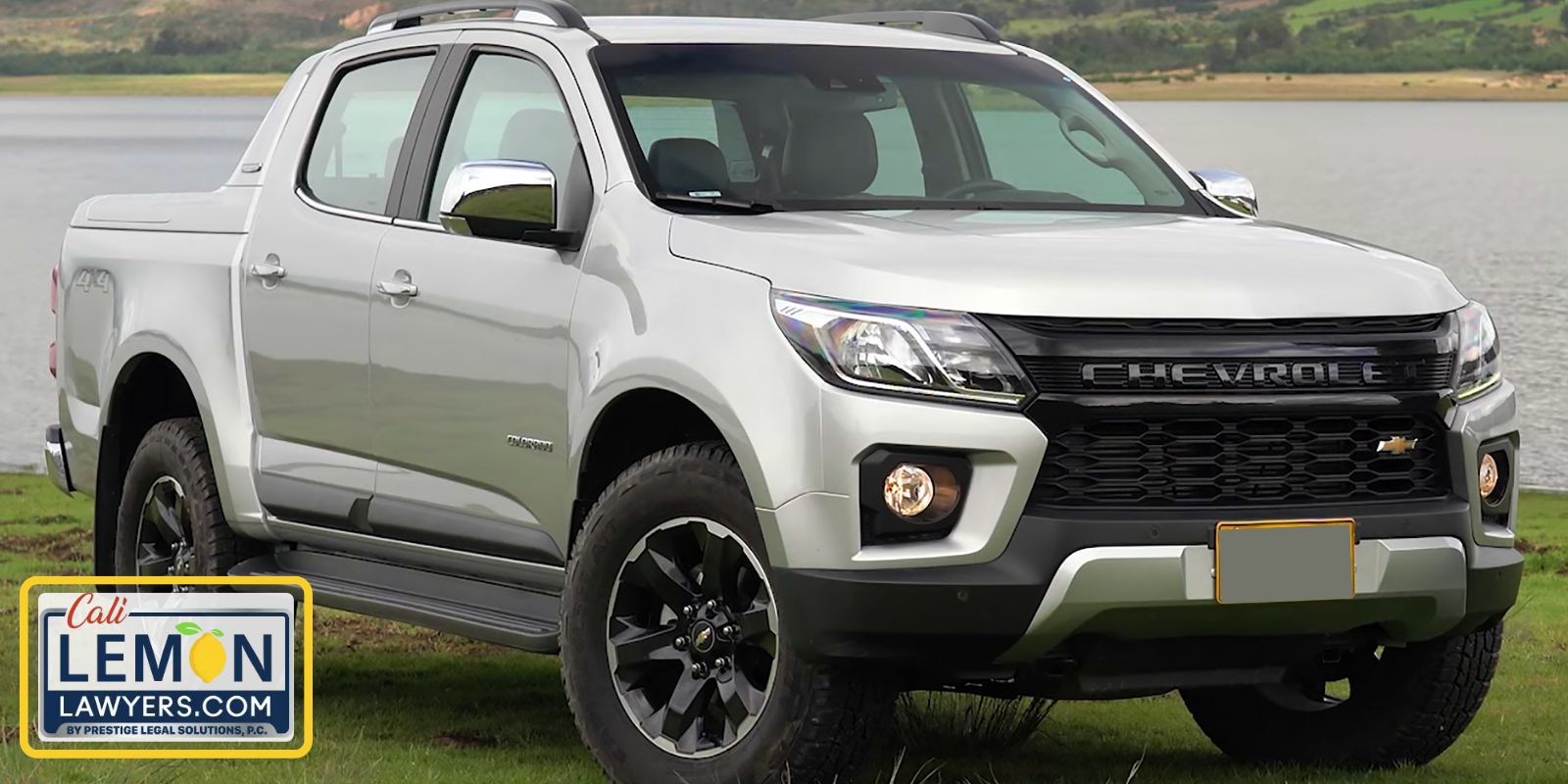
2018-2023 Chevy Colorado Problems
Are you interested in learning the common problems reported with Chevrolet Colorado models from 2018 to 2023? In this article, we’ll take a closer look at typical problems you might experience depending on which model year you’re looking at.
The Chevy Colorado has been a favorite truck since its introduction in 2003. Models from 2011 have been part of the 2nd generation and have exhibited some significant problems. With the release of the 2023 Chevy Colorado and the introduction of the 3rd generation, we hope to see fewer issues, but that may not be the case.
The purpose of this article is to uncover the most common 2018-2023 Chevy Colorado problems. Be well informed about why they exist, how to fix them, and if you may be entitled to a refund or replacement vehicle under the lemon law. Give us a call or fill out the form below to quickly see if your car qualifies.
2018 Chevy Colorado Problems
According to the NHTSA website, these are the most common Chevy Colorado problems with the 2018 model year.
Malfunctioning Fuel System
General Motors recalled this Colorado because the high-pressure fuel pump can detach from the mounting flange. With this defect, the fuel lines can become damaged and a truck fire can occur. As a significant failure, any owner would be scared to drive with this threat looming.
Excessive Vibration
A vibration commonly occurs when traveling between 35 and 45 mph with RPMs of 1200 to 2200. Most users find that it’s a problem with the eight-speed automatic transmission but often have trouble getting the dealerships to repair the issue.
Misfiring on Cold Start
Owners are complaining that the Chevrolet Colorado can misfire during a cold start. While the Check Engine Light often comes on for a second, no diagnostic trouble code is set, making it much more difficult to diagnose and recreate the problem.
2019 Chevy Colorado Problems
According to the NHTSA website, the 2019 Chevy Colorado may not be the subject of any recalls, but there are still plenty of customer complaints.
Shuddering/Hard Shifting
Not only does the 2019 seem to have the same vibration issues as the 2018 Chevrolet Colorado, but it also shudders and shifts hard. Yet, dealerships continue to tell owners that the feeling is normal and there’s nothing wrong.
Stuck Ignition Key
Many drivers have reported an ignition key that can’t be taken out and a system that won’t rotate to the Off position. When the key gets stuck in the Off position, the engine isn’t turned on, but the truck could be easily stolen.
Failed Power Steering
The power steering module fails, leaving owners no choice but to have the truck towed. What many of them are finding is that the harness has corroded because of water infiltration. Not only do the parts need to be replaced, but to prevent the problem in the future, the source of the water leak must be found and resolved.
2020 Chevy Colorado Problems
There are far fewer complaints about the 2020 Chevy Colorado, according to the NHTSA website, but there are still issues with the powertrain.
Transmission Vibrations
The 2020 Chevrolet Colorado has a jerky transmission that seems most noticeable while downshifting. It also happens more frequently when driving in cooler temperatures or between 1st and 2nd gear.
Glitchy Electrical System
Multiple complaints about the electrical system have surfaced. Some owners report an infotainment system that won’t show a display, while others say the radio turns on full volume with no warning.
2021 Chevy Colorado Problems
The 2021 Chevrolet Colorado has one recall and some serious complaints from owners, according to the NHTSA website.
Defective Seat Belts
There’s a recall stating that the wrong bolts may have been used to fasten the seat belts in the Chevy Colorado. With the wrong bolt used, the seat belt can fail to restrain occupants during an accident.
Clunking Transmission
Several drivers have reported a clunking noise from the transmission, especially when the truck is in Reverse. While some dealerships have performed a software update, it doesn’t seem to have resolved the problem.
2022 Chevy Colorado Problems
Based on information from the NHTSA website, there aren’t many complaints about the 2022 Colorado model yet, but there’s already a recall.
Improper Seat Welding
GM has recalled the Chevy Colorado models because the manual passenger seat may not have been welded correctly. If the hook attachment isn’t welded right, it can separate from the frame track, causing serious injuries in the event of an accident.
Dim/Malfunctioning Display
The display of the Chevy Colorado seems to be causing a lot of trouble. For some people, the lights remain dim, making it hard to see at night. Other people complain about the gauges being incorrect, even the fuel gauge, leading to a lot of trouble.
Older Chevy Colorado Problems
If you are thinking about buying an older Chevrolet Colorado, you still want to be careful. While these models may not have the same problems as the newer ones, there are still serious concerns to deal with. Here are the three most common Colorado problems with older model years.
Failed AC Blower
The AC blower stops working, leaving people with a warm cabin in summer. This malfunction occurs because of a failed resistor, which does tend to be an easier fix.
Misfire/Check Engine Light
When the engine starts to misfire, it could be caused by worn valve seats. These engine misfires also causes the Check Engine Light to come on. There have also been troubles with the diesel engine, turning even a low mileage truck into a problem. If you plan on buying an older truck, research the engine options carefully in hopes of getting one that’s working correctly.
Defective CD Player
For some people, a defective CD player may just seem like an inconvenience. However, the trouble is that the problem was rampant in older models, with GM doing little to resolve the issue. The only solution would be to visit a radio repair shop, which could be costly.
Chevrolet Colorado Reviews
Is the Chevrolet Colorado a good truck? It has good towing capacity and a spacious crew cab configuration, but that doesn’t make it immune from several common issues. Let’s look at what a few of the most reputable publications have to say about recent models.
Car and Driver has this to say about the 2022 Colorado. “The Colorado pickup is nimble and capable, but it’s not as desirable or polished as top rivals.”
According to Edmunds, the 2021 Chevy Colorado has only earned a 3.9-star customer score. Additionally, the expert score is 7.6 out of 10, leaving it listed as “Average.”
Is the Chevrolet Colorado a Reliable Mid-Size Truck?
RepairPal offers an in-depth look at how reliable the Colorado is. Right now, this mid-size truck receives a score of 4.0 out of 5.0, placing it 4th out of seven models in the class.
Starting with the average annual repair and maintenance cost, the Colorado estimate of $599 a year is fairly average compared to the $584 for midsize trucks. Additionally, RepairPal estimates that the truck will visit the shop an average of 0.2 times per year unscheduled, which is also about average. Finally, the severity of repairs is 13%, which falls right in line with the average percentage.
Best Chevy Colorado Models To Drive
If you want a mid size pickup truck without all of the hassles, it’s important to choose a model year that has fewer issues. You don’t want to choose one of the Chevy trucks with a worn valve seat, an engine misfire or leaking transmission fluid. Based on reports from other users, these are the mid size pickups you can drive that will avoid many of the major problems.
If you want a reliable model, consider the 2008 Chevy Colorado. It has fewer complaints and avoids many of the most common problems. You could also choose the 2010-2012 vehicles.
On the flip side, if you want to avoid the trucks with more problems, we recommend staying clear of the 2004-2005, 2015-2016 and the 2018 or newer. Of course, there’s always the option to choose a GMC Canyon as well, but we recommend doing your research for those models too.
Chevy Colorado Lemon Lawyers
Are you driving a lemon truck? As the top GM lemon lawyers, we can help you get compensated for your trouble. As your premier Los Angeles lemon law attorneys, we take cases like yours every day. Our team is ready to fight for your rights.
If you’ve had your Chevrolet Colorado to the dealership for the same repairs multiple times without a resolution, it’s time to contact us. Call now and receive compensation for your defective vehicle.
Start Your FREE Case Review
or give us a call at:

Start Your FREE Case Review









